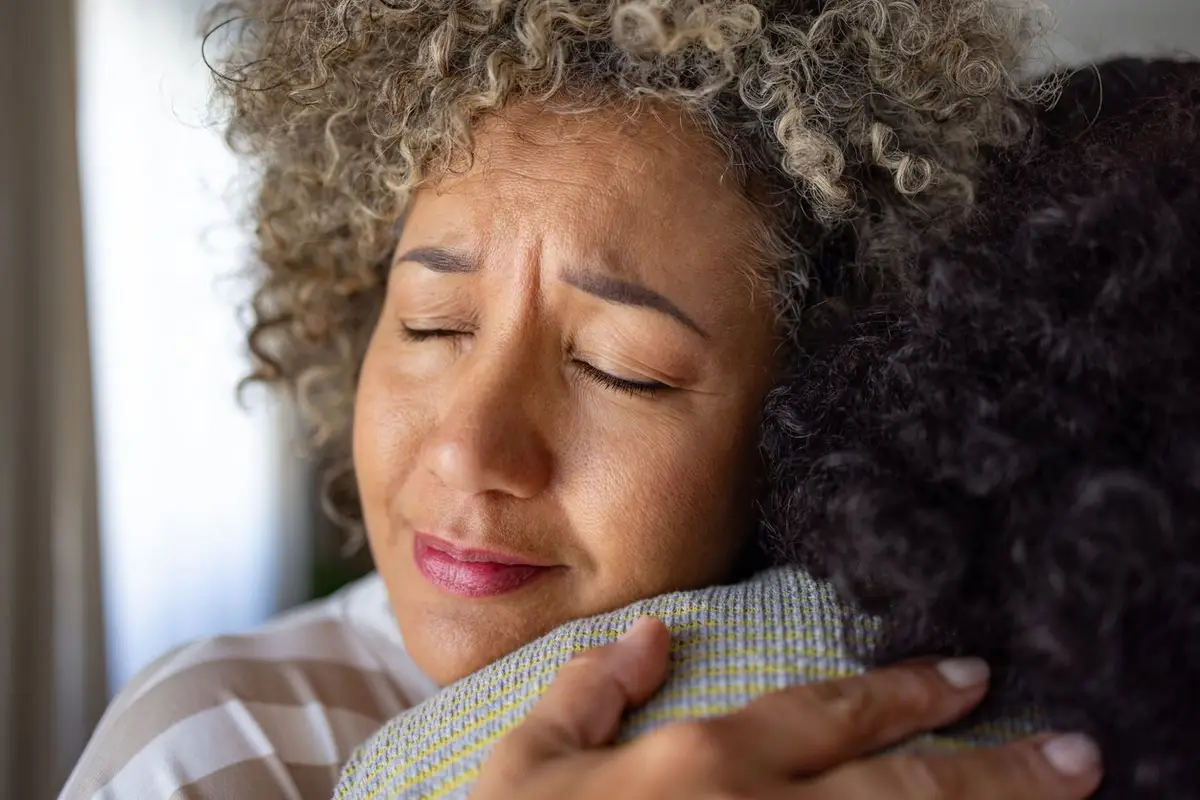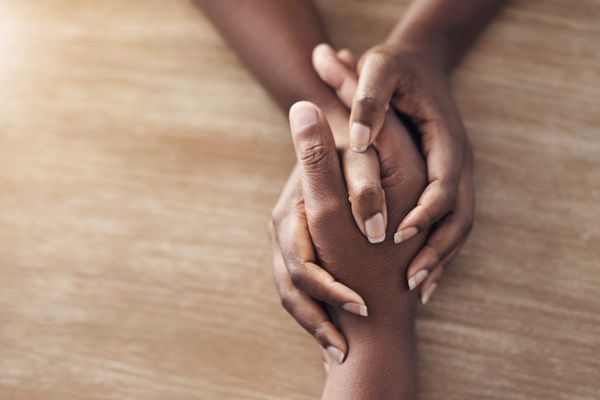August 1 is National Girlfriend Day.
My best friend Jessi has always told me, “I only have fun with you.”
Of course, I love when she says that, even though I know it’s not true. Jessi has an awesome life in Michigan — she’s surrounded by people who love her — and she dog-sits for a sweater-wearing English bulldog named Tucker, which is like the definition of fun.

While it’s true that we’ve had an infinity loop of laughter over our 20-plus years of friendship, we’ve also had to deal with a lot of tough stuff like death and cancer and younger brothers.
Through it all, Jessi has been my emotional support human. And science shows that emotional support is a top priority for women when it comes to friendship. And women are more likely than men to lean on friends during stressful situations.
Read: Someone Who Likes You: The Importance of Girlfriends for Mental Health >>
“Emotional support is the most important element that can help a person going through a hard time,” said Yvonne Thomas, Ph.D., a Los Angeles-based psychologist who specializes in life transitions and relationships. “You don't feel alone. You don't feel like you’re isolated from people. You don't sink as far into depression or sadness or anger because you can vent if you trust somebody and you know they care.”
The key, Thomas said, to good emotional support is to offer a safe, judgement-free zone so your friend feels vulnerable enough to share and fully vent about their feelings and concerns. Sharing your own experience with tough times can help your friend feel less alone — but just make sure you’re not trying to turn the conversation around to focus on you. “People can do that without meaning to,” Thomas said.
No friendship is perfect and no two relationships are the same. But no matter how close you are, it can still be hard to know what to say or do when a friend is going through a rough time. (Friendly tip: If you’re going to DoorDash ice cream to your friend, make sure they’re home. Ants never make any situation better.)
We asked Thomas for advice on what to say and how to emotionally support your friend when times are tough.
Here are her tips for how to support someone through five common difficult situations.
1. A health condition diagnosis
What to say: “I’m here for you. You can always talk to me — you’re not a burden. I want to help you the best way I can.”
Being diagnosed with a disease or illness — no matter how severe — is scary and overwhelming. Some people may retreat or try to hide their feelings because they don’t want to seem needy or burden people with the reality of their situation.
Let your friend know upfront that you want them to lean on you and not to feel guilty (providing that’s really how you feel). And if they ever think they’re relying on you too much to check in with you because odds are that’s not the case.
2. Death
What to say: “I am so sorry for your loss. What can I do to help you?”
After a loved one dies, most people tend to feel numb or in shock, so it’s a good idea to ask questions to try to understand what your friend may need during this time. And, because they may not be thinking straight, try offering suggestions that may help ease stress. For example, can I bring over dinner? Can I call anyone for the funeral arrangements? Do you need your laundry done?
The same can apply to emotional needs. Do you want to talk about your loved one? Do you want me to stay over? Do you want space to grieve on your own?
Grief is complex, and what your friend wants/needs might change from day to day, so it’s a good idea to check in with them regularly even if it’s just a text or a voicemail to let them know you’re there when they are ready.
Read: Expert Advice on Getting Through Your First Holiday Season After the Loss of a Loved One >>
3. Loneliness
What to say: “I’m so glad you told me. It’s not easy, but you’re not alone. Everyone feels lonely at some point in their lives.”
First things first: If your friend tells you that they are feeling lonely — commend them. Let them know that you appreciate how honest they are and that loneliness is common — too common these days.
Ask your friend how they would like for you to be there for them. Maybe it’s scheduling a weekly FaceTime or planning walks after work or meeting for lunch on weekends. Or if they’re interested in dating, offer to be a wing person. If you’re both down to mingle, try double dates.
Admitting loneliness is the first step, and figuring out what to do about it can help your friend break the cycle and connect back to the things they enjoy in life.
4. Relationship problems

iStock.com/Antonio_Diaz
What to say: “I’m sorry you’re going through this — I’m here to listen.”
Maybe your BFF had a big fight with their partner. Or things are getting separation-bad. Of course, it’s natural to want to karate kick anyone daring to upset your friend, but in this case you don’t want to say (or do!) anything that may jeopardize your friendship down the less-rocky road.
Let your friend know that you’re there for them, but ultimately it’s their boo, their relationship and you don’t want to influence any major life decisions.
Staying in your lane may also mean suggesting couples therapy or individual therapy to help your friends figure out the best way forward without taking sides.
5. Family drama
What to say: “Tell me what happened.”
Everyone’s family is a little messy. And you don’t have to be season-two-episode-Fishes-of-The-Bear-bad to know that family dynamics can be complicated.
Listening to your friend’s side of the story can help you both gain some perspective. And follow-up questions like, “Did you do or say anything by accident that caused the response?” can help, too.
If your friend is honest with themselves, they can take a moment to reflect on their role — if any — in the drama.
You’ve got a friend in me
Friendship isn’t easy. It takes a lot of hard work and effort and sharing inspirational memes to create a bond that tracks through everything life throws at you.
But if you’re like me, you know it’s an honor to even be part of the support team.
- What Do Your Friends Mean to You? ›
- Someone Who Likes You: The Importance of Girlfriends for Mental Health ›
- Why Friendships Are So Important ›






